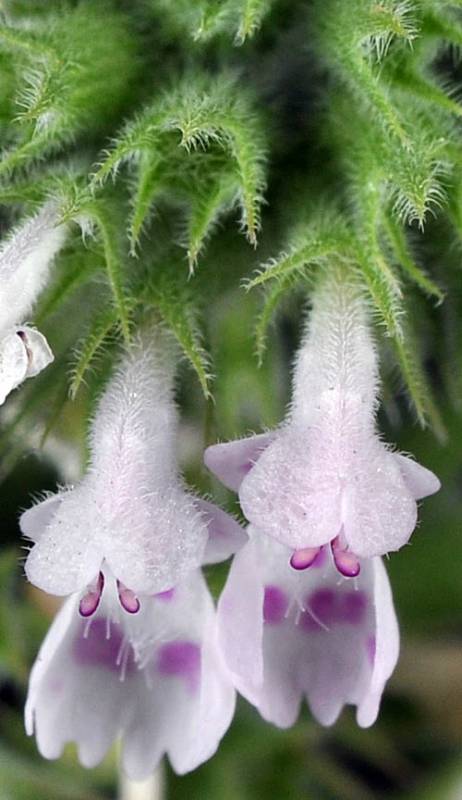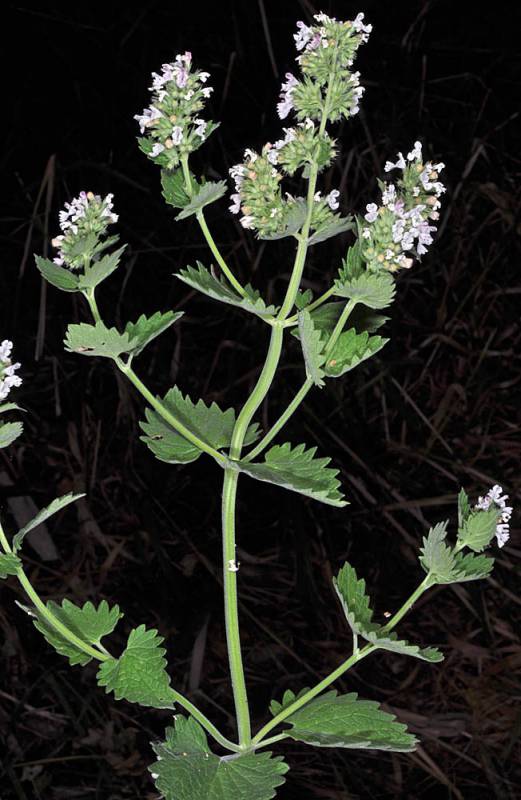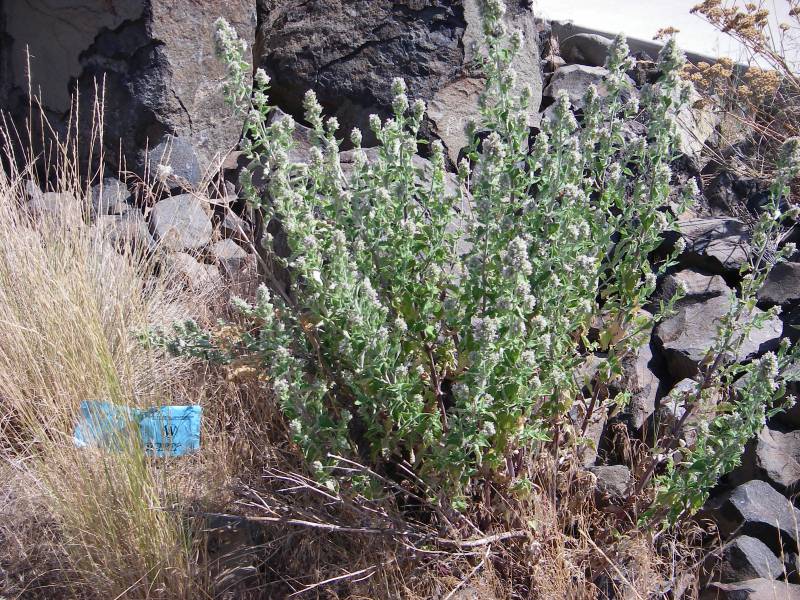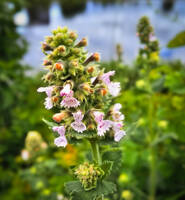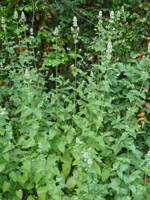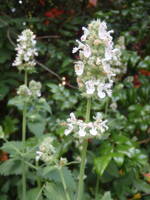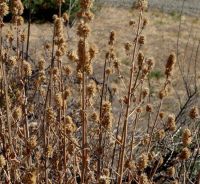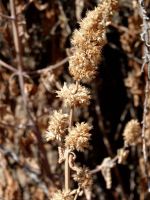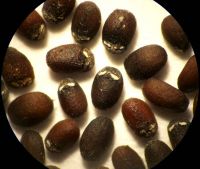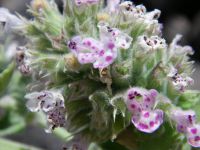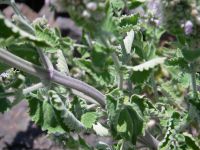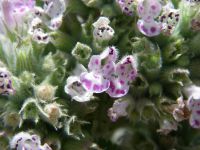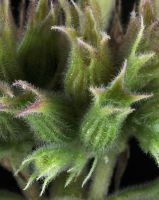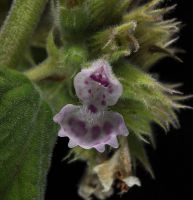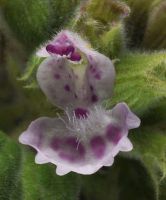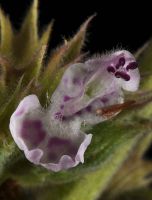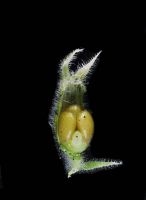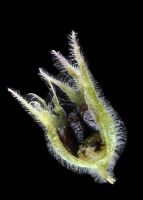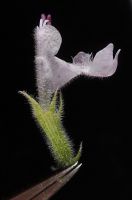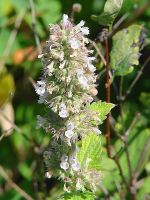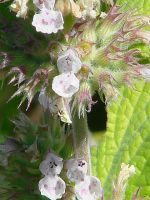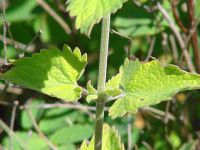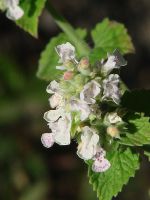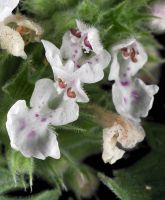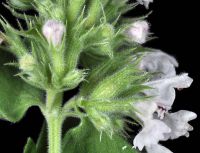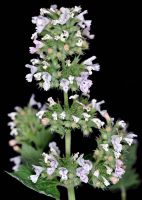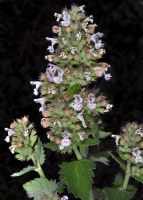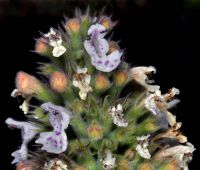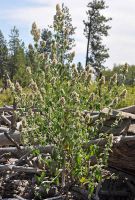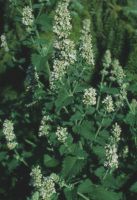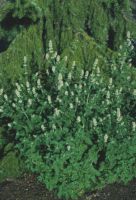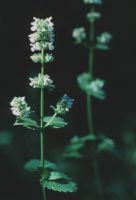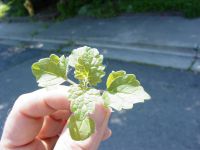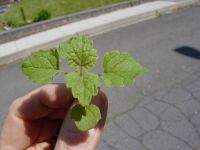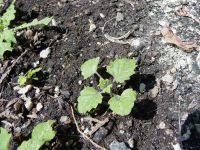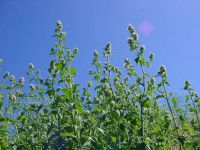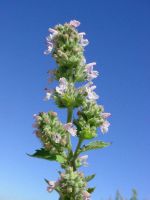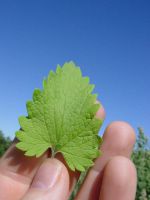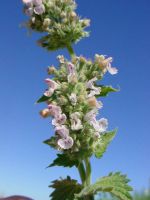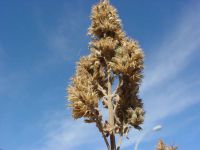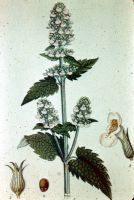Distribution: Occurring chiefly east of the Cascades crest in Washington; Chiefly east of the Cascades in Washington, but in scattered locations on the west side; widely established throughout North America.
Habitat: Roadsides, streambanks, waste places, sometimes in relatively undisturbed areas.
Flowers: June-September
Origin: Introduced from Eurasia
Growth Duration: Perennial
Conservation Status: Not of concern
Pollination: Bumblebees, bees
Perennial herbs from a taproot, the several, erect, square stems branched upward, 3-10 dm. tall.
Leaves opposite, wholly cauline, scarcely reduced upward, grayish beneath with short hairs, petiolate, coarsely serrate with rounded teeth, the blades triangular-ovate, basally cordate, 2.5-7 cm. long and 1.5-5 cm. wide.
Flowers in short, dense, spike-like clusters 2-8 cm long and 1.5-2.5 cm. wide at the ends of the branches: calyx 5-6 mm. long, the 5 slender, acuminate teeth shorter than the tube, nearly equal; corolla whitish, dotted with purple, shortly exerted from the calyx, two-lipped, the upper lip shallowly 2-lobed, upright, concave, the 4 stamens ascending under it, the upper pair longer than the lower; lower lip spreading, 3-lobed, the broad central lip with small, rounded teeth; style 2-parted; ovary 2-celled, superior.
Nutlets 4
Publication: Sp. Pl. 2: 570. 1753.
PNW Herbaria: Specimen records of Nepeta cataria in the Consortium of Pacific Northwest Herbaria database
WA Flora Checklist: Nepeta cataria checklist entry
OregonFlora: Nepeta cataria information
E-Flora BC: Nepeta cataria atlas page
CalPhotos: Nepeta cataria photos

